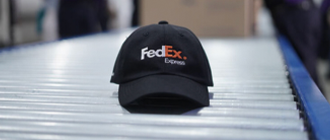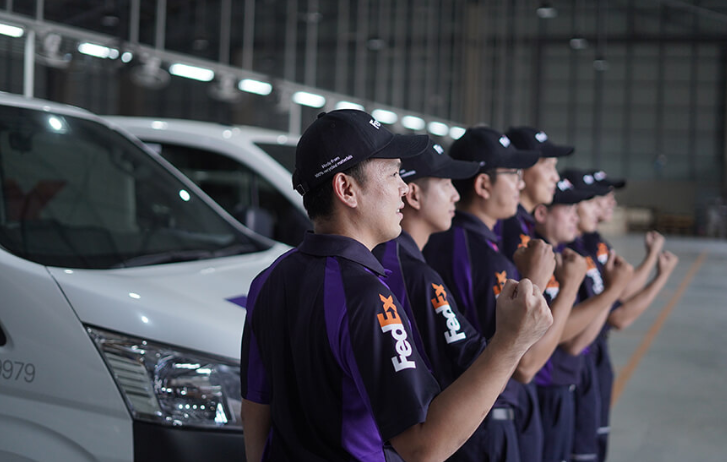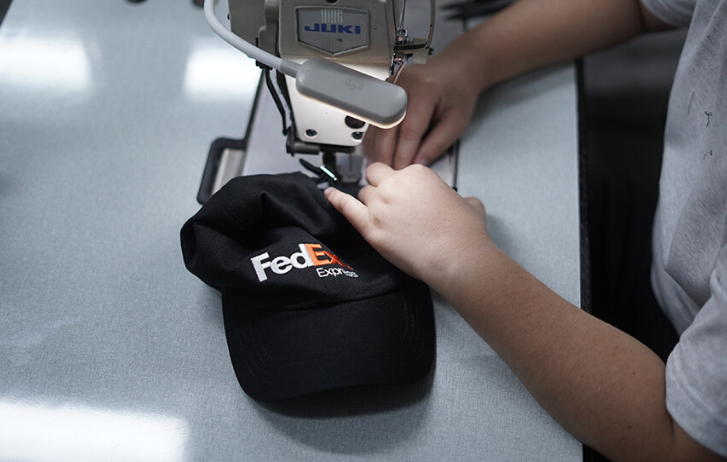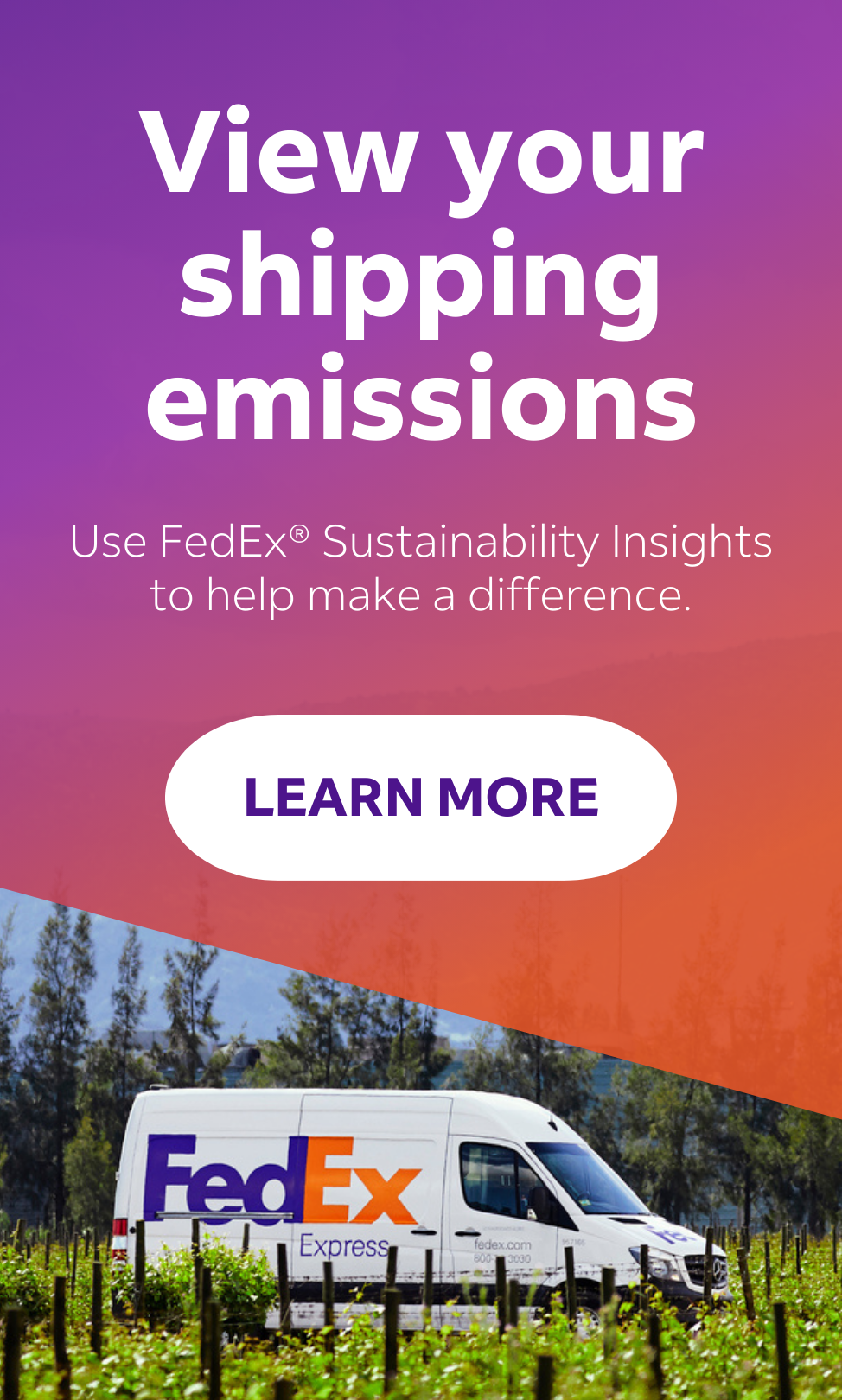
How We Recycled Old Uniforms Into New Caps In Thailand
By FedEx | First published: November 7, 2022 Updated: January 10, 2024
At FedEx, we’re working hard to put sustainability at the center of our business. In Thailand, we’re collaborating with a local upcycling business to transform retired uniforms into new caps for local couriers.
At FedEx, our job is to connect people and possibilities across the world as responsibly and resourcefully as possible. Around the globe, we’re on a journey to deliver a more sustainable future for our customers and team members by seeking new and innovative ways to lessen our impact on the environment.
When it comes to delivering impact, no step is too small. In Asia Pacific, our teams are coming up with as many eco-friendly ways as possible to reduce carbon emissions, and help us reach our goal of carbon-neutral operations by 2040.
Giving old uniforms a new lease of life
FedEx frontline team members are given a new uniform every year. But there's just one problem. The old uniforms pile up. We asked: what alternatives can we find for disposing old uniforms more sustainably.
One market where we've started to tackle this is Thailand, collaborating with recycling expert SC Grand. Certified by various global organizations, SC Grand has over 60 years of experience recycling used clothes into sustainable textile products.
By identifying a local sustainability partner, we can benefit from their shared expertise on how to minimize our environmental footprint.
So far, more than 200 old uniforms have been transformed into fiber, yarn and fabric, and reproduced into over 700 FedEx caps. And our upcycling project continues to go from strength to strength. The local teams continue to gather old uniforms in preparation for our next initiative: transforming old uniforms into new socks for couriers.
Elsewhere across the organization, teams in Brazil are recycling old uniforms into blankets donated to homeless and animal shelters. And in the Philippines, FedEx uniforms are re-made into sustainable gifts such as notebooks sent to customers.
What else are we doing to work towards our net-zero goal?
From an operations standpoint, we’re gradually transitioning to a 100% electric pickup and delivery fleet, and continuing to optimize efficiencies of our facilities and increase the use of sustainable fuels.
We are also taking responsibility to help clean up our beaches and oceans across the region. As for our services and solutions, we’re encouraging customers to adopt our digital shipping tools so they can go paperless where possible, and use recycled packaging and reusable packaging to reduce their environment impact.
Transforming our operations to be more sustainable is a top priority for us. As we build the network for what’s next, we must protect our future, our people and our planet, one initiative at a time.
For more information on our sustainability projects and environmental policies, check out our latest ESG report.
SHARE THIS STORY
- How To Ship A Giant Panda
- Where Do Old Planes Go When They Retire?
- Generative AI: A New Frontier
- How To Make Freight Shipments Work For Your Small Business
- What’s So Dangerous About Coconuts? Your Guide To Dangerous Goods Logistics
- The Rise Of Intra-Asia Trade: Opportunities In The China-Southeast Asia Corridor
Sign up now and save on your shipping rates!
Sign up now and earn discounts by shipping instantly with FedEx Ship ManagerTM at fedex.com.
Recommended For You

Navigating Customer Demand For Fast, Sustainable Delivery In Australia
Consumers are increasingly focused on sustainability as well as fast delivery. Here are some insights that can help SMEs in Australia.
Read More
A New And Sustainable Future At FedEx
As companies move towards sustainable business practices, FedEx APAC President Kawal Preet discusses ESG initiatives in Asia Pacific.
Read More
A Blue Planet: Marine Conservation In Asia Pacific
By helping conserve marine life and combat environmental threats, we can all play a part to help preserve our blue planet for future generations.
Read More

